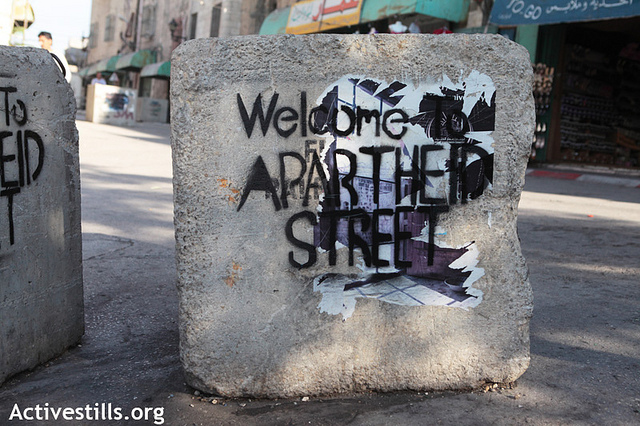Tag: Military court
-
Updated: The three Palestinian women activists arrested last week remain imprisoned
21st August 2013 | International Solidarity Movement, Nablus Team | Nablus, Occupied Palestine Update 26th August: On Thursday, August 22, Leena Jawabreh was sentenced to 30 days (one month) in Israeli prisons, and a 1000 NIS fine. On Sunday, August 25, Linan Abu Ghoulmeh was sentenced to 60 days (two months) in Israeli prisons and…
-
Setting a dangerous precedent: 16-year-old Ali Shamlawi faces 25 counts of attempted murder for alleged stone throwing
18th June 2013 | Mondoweiss, Katherine Flynn| Hares, Occupied Palestine Three months ago today, in the early hours of March, 17 2013, Israeli soldiers appeared at 16-year- old Ali Shamlawi’s house in the West Bank village of Hares. They blindfolded him, handcuffed him and took him away. His arrest was one of a spate of…
-
Jamila Shalaldeh, accused of assaulting 13 soldiers found innocent by Ofer Military Court
23th May 2013 | International Solidarity Movement, Team Khalil, Hebron, Occupied Palestine On Tuesday 21st May, Jamila Shalaldeh was found innocent by Ofer Military Court of assaulting 13 soldiers. Jamila and her son Abdel were visibly nervous before her trial. Fortunately, the Israeli military judge agreed with Jamila and her family that the charges against…


